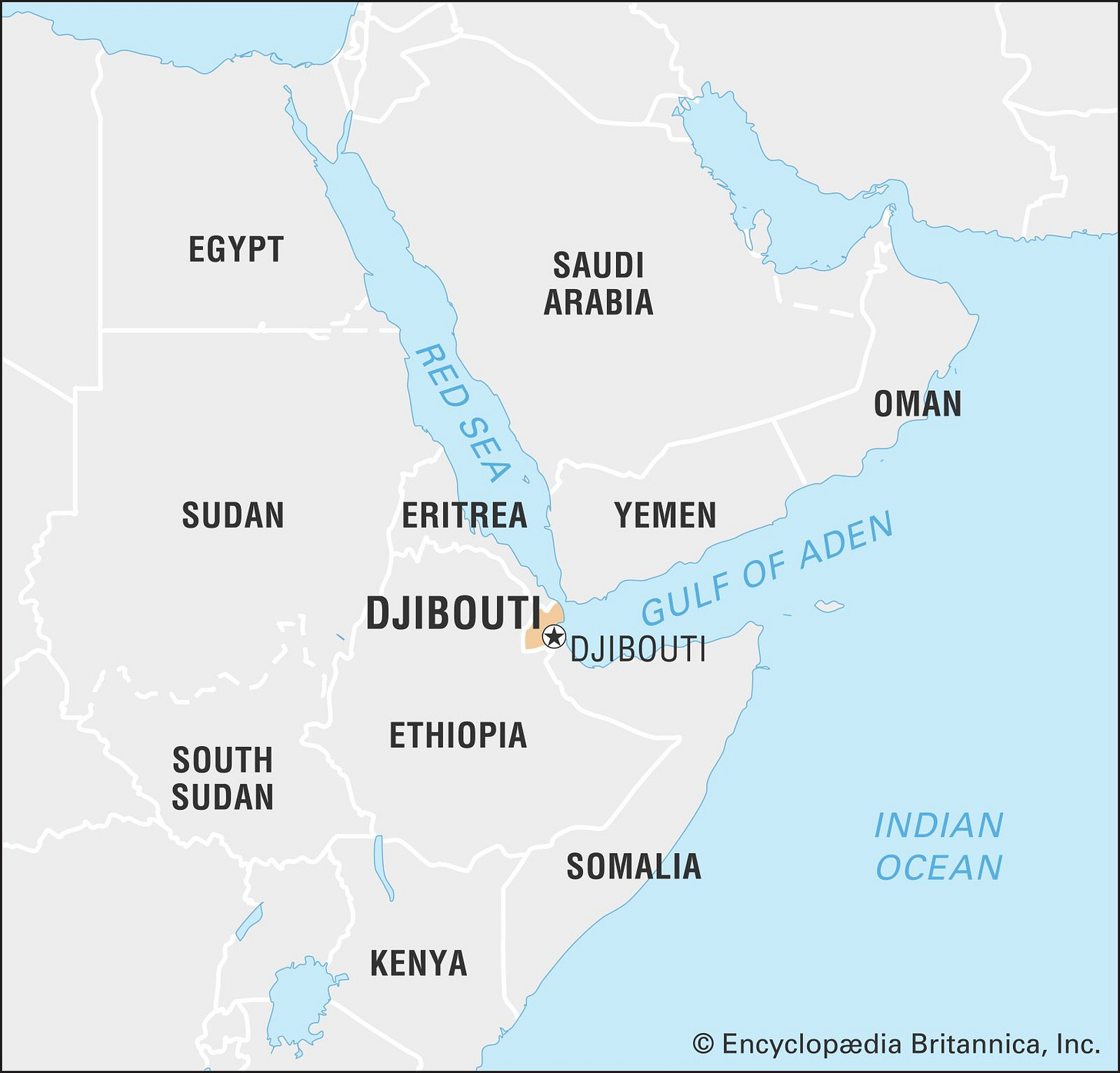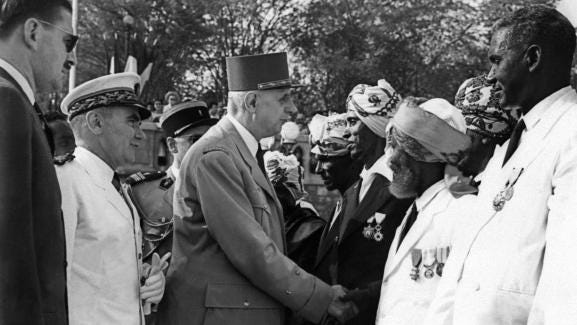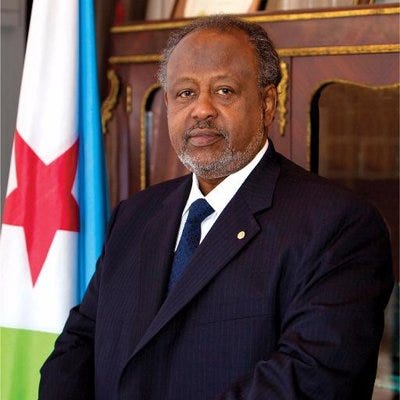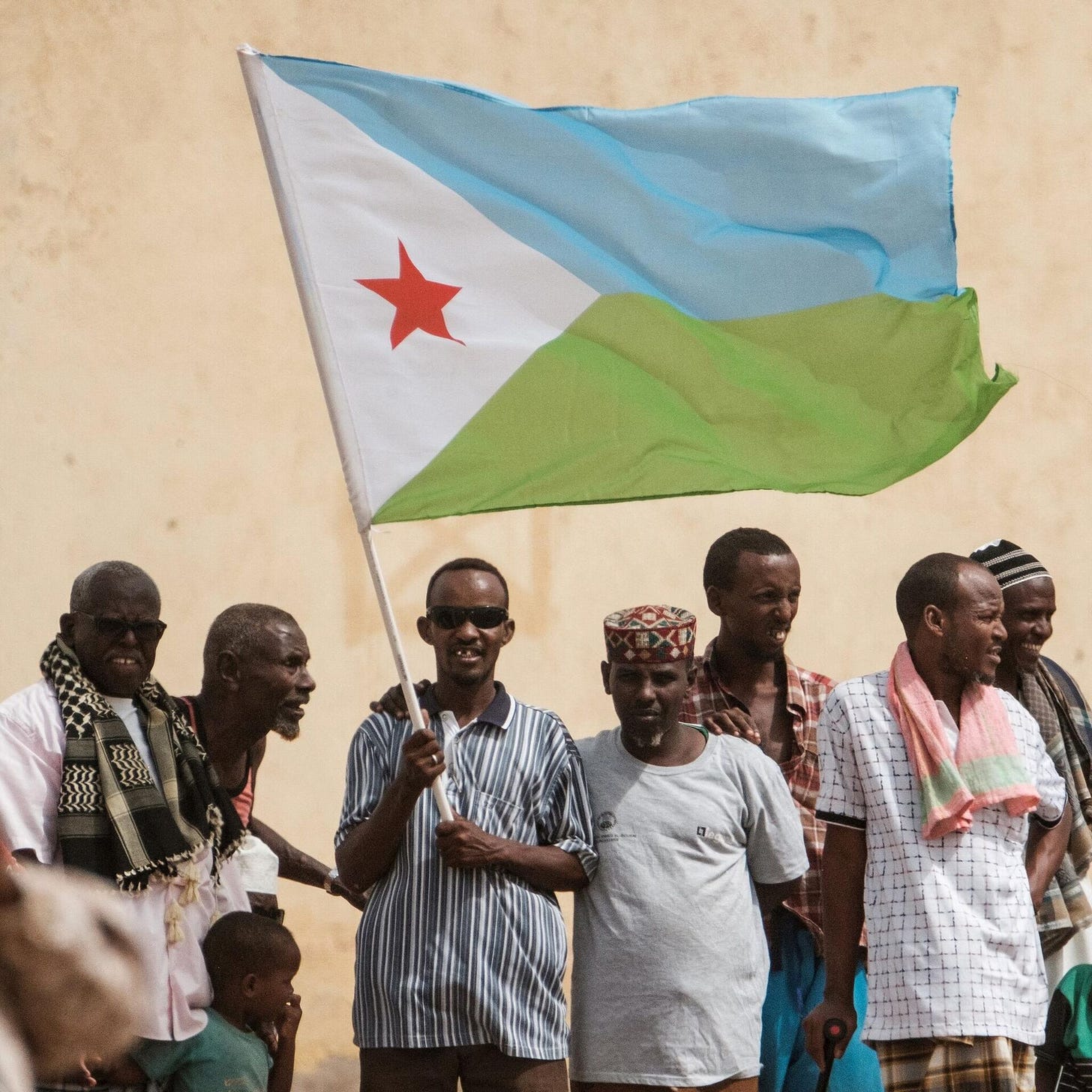djibouti: the world's most strategic pawn
how a tiny nation became the backbone of global power plays
Djibouti is one of those countries that feels like a glitch in the system, like someone hit copy-paste on the colonial map of Africa and forgot to check if it made any sense. It’s tiny. Hot as hell. Barren to the bone. Barely any arable land, almost no natural resources, and yet… it’s still standing. Why? Not because it’s thriving on its own terms, but because the world’s biggest players need it to be there.
Let me explain.

Djibouti sits at one of the most strategically important locations on the planet: the Bab-el-Mandeb Strait. That’s the narrow chokepoint where the Red Sea squeezes into the Gulf of Aden, a critical gateway for global shipping. A significant chunk of the world’s oil and goods passes through this stretch of water, which means the U.S., China, France, Japan, and even countries like Italy are all paying rent for military bases in Djibouti. It’s a tiny desert nation that essentially lives off its strategic location like a landlord with the best property on the block.
But the story of Djibouti’s existence isn’t just about geography. It’s also about colonial arrogance.

Back in the late 19th century, France carved out this patch of land as French Somaliland. The borders they drew ignored the fact that most of the people living there were Somalis. When the decolonization wave hit Africa in the 20th century, Somalia wanted Djibouti, to unite its people. But France wasn’t letting go. They leaned heavily on the minority Afar population, another ethnic group native to the region, but with roots also in Ethiopia, to tip the scales against the Somalis. A few rigged votes later, Djibouti became “independent” in 1977, though it still felt like an extension of French foreign policy.
And that’s when the real Djibouti story starts: a country too divided and resource-starved to stand on its own, yet too strategically valuable for anyone to let it fail.
Life in Djibouti isn’t easy.
It’s dry, unforgiving land, where nothing much grows, and the economy isn’t doing anyone any favors. Despite being one of the most expensive countries in Africa, most people here live in poverty, scraping by while the government cashes checks from foreign militaries.
Oh, and speaking of the government, it’s been run like a family business for decades. Ismaïl Omar Guelleh took over as president in 1999 after inheriting the job from his uncle, and he’s clung to power ever since. Elections are more formality than democracy, and dissent gets shut down fast.

But here’s the wild thing: despite all of this, despite the dictatorship, the poverty, and the sheer lack of resources, Djibouti is still essential.
The U.S. uses it as a counterterrorism hub. China built its first overseas military base there, a key outpost for its ambitions in Africa and beyond. France never really left, maintaining troops and influence. Japan has a base. Italy’s got one too. Djibouti might be small and struggling, but it’s sitting on prime geopolitical real estate.
So what does that mean for the people who actually live there?
That’s the uncomfortable part. Djibouti survives not because it’s a thriving nation-state but because it’s a convenient pawn in the global chess game. It’s a place where local needs are secondary to international interests, a country held together by military paychecks and strategic necessity.
Djibouti’s story is a reminder of what happens when borders are drawn for convenience, not for people. It’s a cautionary tale about how colonialism and global power politics can create nations that, on paper, shouldn’t work, but in practice, have no choice but to exist. It’s a nation born from geography, not identity, and kept alive by the fact that the world simply can’t afford to let it go.






Interesting article thanks!